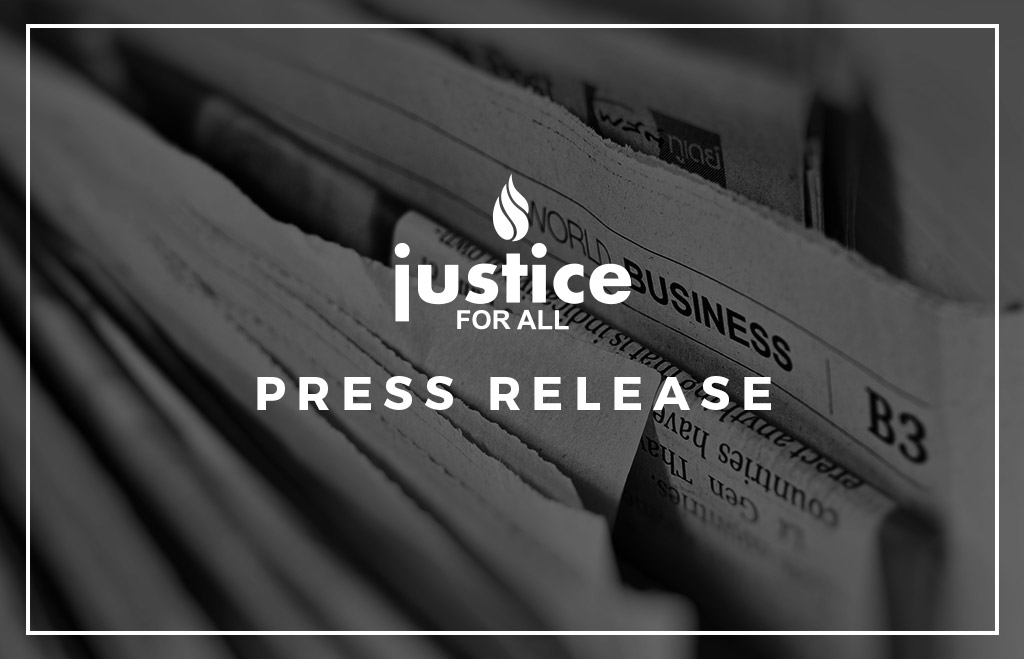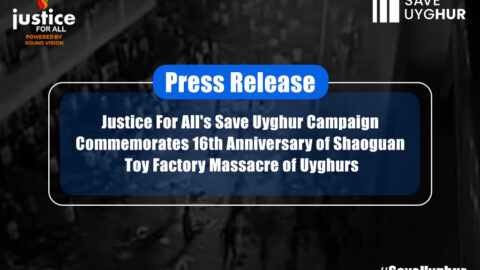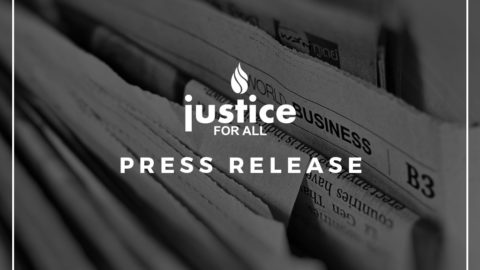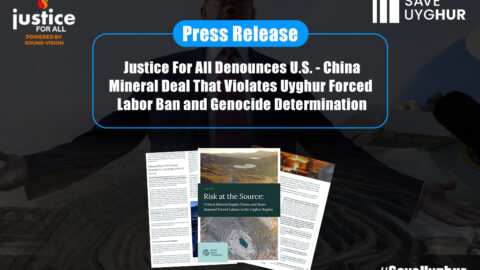FOR IMMEDIATE RELEASE Washington, D.C - June 25, 2025 On the 16th anniversary of the…

India: State Department Human Rights Report Doesn’t Mention RSS
For immediate release
Contact: Zahir Adil
Phone: 781-492-5388
zahir@justiceforall.org
(Washington D.C.) On March 11, 2020, Secretary of State Mike Pompeo issued the US State Department’s annual report on Human Rights, including a 65-page section on India that is noticeably weak.
Justice For All strongly disputes the India section of this report covering the year 2019 and demands a correction from the State Department. While the authors of the State Department’s report identify serious human rights violations by the Indian government (“Significant human rights issues included… extrajudicial killings perpetrated by police; torture by prison officials; arbitrary arrest and detention by government authorities; harsh and life-threatening prison conditions; political prisoners in certain state…”), the report fails to ask the question: why this is happening in India.
“We believe this report is heavily influenced by the Hindutva lobby and demand that an investigation be launched into RSS and its extremist mentality,” stated Imam Abdul Malik Mujahid, President of Justice for All.
As a human rights advocacy organization working on behalf of persecuted minorities, we note with particular concern that the report fails to examine the ruling party’s Hindutva ideology, a phenomena many scholars are defining as a form of fascism with serious impact on human rights in India. The increased targeting of marginalized communities is often carried out by groups claiming to support the current government.
Though anti-Muslim violence has increased this year, it was already occurring in 2019 due to the incitement of key government figures. And yet, the State Department report includes no direct criticism of Prime Minister Modi or Amit Shah, or their promotion of divisive and extreme Hindutva policies. The State Department report fails to use the term Hindutva or mention RSS or any Hindu militia. The fact that the RSS or (Rashtriya Swayamsevak Sangh), a Nazi-inspired militia organization linked to the current government of India is not mentioned at all calls this report into serious question. The data coming from the ground in India regarding the abusive treatment of minorities by RSS members is irrefutable.
In December 2019 India’s Parliament passed the controversial Citizenship Amendment Act, which the Office of the UN High Commissioner for Human Rights (OHCHR) has called discriminatory towards millions of Muslims. This is noted quite briefly in the Report’s section on Freedom of Movement. There is a longer discussion of measures taken against Rohingya refugees in Section F, on refugees. But the report’s section on “National/Racial/Ethnic Minorities” is noticeably limited. Even the horrible and growing phenomena of lynching people accused of eating beef (“beef lynching”) is only given a 60 word treatment in all of the 65 pages.
While Christians are only mentioned 3 times in the report, there is substantial evidence of widespread harassment of this minority community that deserved more attention. The section on AntiSemitism is also brief. Moreover, the report fails to mention brutality used against protestors especially students at Jamia Millia University and the Aligarh University, attacked on Dec 15, 2019.
The State Department report fails to mention that India is the only country with two genocide alerts issued by the NGO Genocide Watch, while it does refer uncritically to the myth of the genocide of Kashmiri Hindus.
The Report does contain useful detail on serious concerns ranging from attacks on freedom of speech, prison conditions and labor rights. What is clearly lacking is a clear and coherent description of government accountability for abuses, especially of minority rights.
It is telling that the State Department Report fails to reference other findings by well-known human rights organizations such as Human Rights Watch and Amnesty International. Instead it only makes reference to outdated United Nations documents.
If United States foreign policy seeks to promote democracy, it is concerning that the report buys into the narrative of the government of India on Kashmir, completely ignoring the Kashmiri aspiration for freedom.
Numerous recent articles have pointed out the strength of the Hindutva lobby in the United States.
Justice For All demands an explanation and a correction from the State Department, as its present form completely undermines the report’s credibility among neutral human rights observers.
Available for interview: Imam Abdul Malik Mujahid, President of Justice For All, an NGO with Consultative Status at the UN. Since 2012, Justice for All has advocated for the most vulnerable and forgotten minorities through grassroots education, advocacy, and the mobilization of diverse allies and communities, to take action in the United States and Canada.
###
Justice for All www.justiceforall.org info@justiceforall.org



